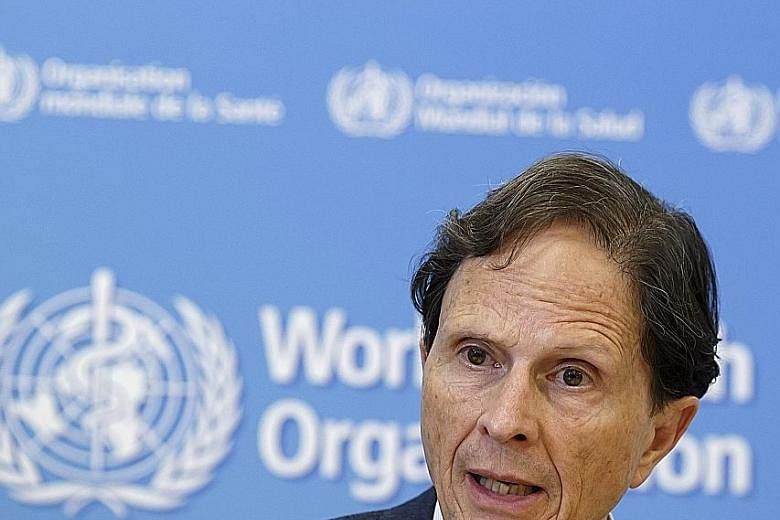Singapore is doing what is needed to try to contain the coronavirus outbreak, said an infectious diseases expert who headed the World Health Organisation's (WHO) global response to Sars in 2003.
Professor David Heymann of the London School of Hygiene and Tropical Medicine said this may make things inconvenient for people, but "you have to put precautionary measures in until you understand what the potential of this outbreak is".
"So every precautionary measure based on national assessment should be followed," he added.
Prof Heymann currently chairs the Strategic and Technical Advisory Group for Infectious Hazards, which provides independent advice to WHO on potential threats to global health security.
He said Singapore "is not overdoing it" with the measures it has introduced.
Singapore moved to code orange on Friday and new measures include cancelling large-scale events if possible.
Earlier measures include not allowing non-residents who had been in Hubei in the past fortnight, or people holding passports issued in Hubei, from entering.
In a telephone interview from London with The Sunday Times, he said: "Singapore has been identifying cases, isolating them, done contact tracing, everything that's necessary to do to stop the outbreak."
This is what the WHO is recommending - to try to ring-fence or contain the disease.
But he added: "It's very difficult when before the disease is known, it's already out in the community. Some of the people coming in to China were exposed."
Singapore is now the country with the most number of coronavirus patients outside of China. This excludes the cruise ship docked in Japan which is classified as an international conveyance.
Prof Heymann said the high number is probably due to "multiple introductions" given the high number of visitors from China.
A major problem is that too much is unknown about the disease, which surfaced only at the end of last year.
Among the unknowns, which may even be more important in fighting a disease, he said, is "we don't yet fully understand the spectrum of the disease, how many cases are mild, like a cold, how many cases are severe".
"It looks like this is a relatively mild outbreak compared with Sars. But there is mortality, especially in the elderly, and those with diabetes, chronic diseases, et cetera."
Early indications point to less serious illness in children, but he added that more data is needed.
Prof Heymann also said that the current understanding of the virus' mortality rate is "skewed", because, until recently, China was only looking at people with pneumonia, in other words, those who are seriously ill.
But there are probably many more with the disease in a milder form who are not picked up, so the base number of patients could be much larger.
It is only recently that China is starting to pick up less severe cases.
Experts are still not clear about how transmissible the virus is. Early data points to droplets, he said. If it is airborne, the infection rate could be 10 times worse.
He said how severe the illness in a person is depends both on the person's own immune system, as well as how large the viral load is when the person is infected.
If someone who is very sick sneezes or coughs in the person's face, the viral load could be high.
If the infection is passed by someone with a mild illness, much like the common cold, the viral load would be low. But if the person getting infected has other medical conditions, he could still get seriously ill even with a low viral load, said Prof Heymann.
On how long the virus remains infective on surfaces, he said it can be transmitted so long as it remains moist. Once it dries up, it is no longer infective.
As to whether someone who recovers can get the infection again, he said it is not clear how long the antibodies last, but there is no lifelong immunity for coronavirus infections.
But he said infection controls everywhere, and definitely in Singapore, are at a standard where there should not be any hospital transmission.












